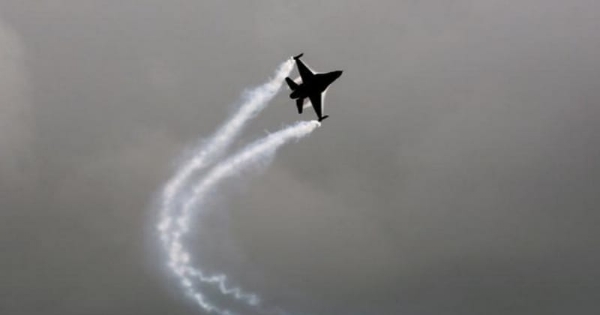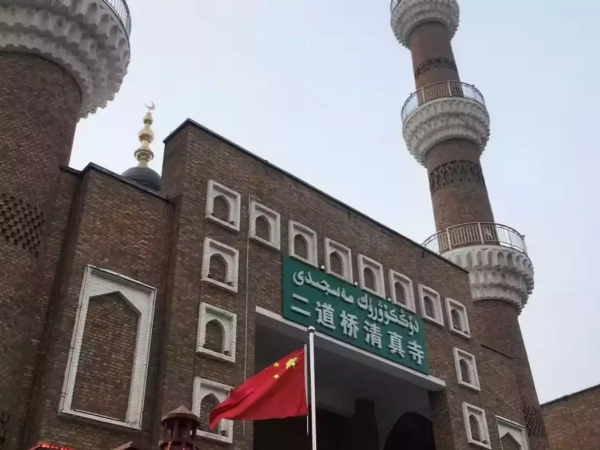#SecurityScan 75: MQ-9B Armed Drones, Security threat of Chinese electric vehicles and more
Home Ministry has decided that the Free Movement Regime (FMR) between India and Myanmar be scrapped to ensure the internal security of the country and to maintain the demographic structure.
Total Views |
This article is a summary of important events that have taken place in last one week affecting, India's national security.
Countering External & Internal Security Challenges
Government scraps free movement between India and Myanmar to ensure internal security
Earlier this week, Amit Shah had announced that government would begin fencing 1643-km-long India-Myanmar border
The Home Ministry has decided that the Free Movement Regime (FMR) between India and Myanmar be scrapped to ensure the internal security of the country and to maintain the demographic structure of India’s North-eastern states bordering Myanmar, Home Minister Amit Shah said on Thursday.
Earlier this week, Shah had announced that the government will begin fencing the India-Myanmar border.

“It has decided to construct a fence along the entire 1643-kilometer-long Indo-Myanmar border. To facilitate better surveillance, a patrol track along the border will also be paved.
"Out of the total border length, a 10 km stretch in Moreh, Manipur, has already been fenced. Furthermore, two pilot projects of fencing through a Hybrid Surveillance System (HSS) are under execution. They will fence a stretch of 1 km each in Arunachal Pradesh and Manipur. Additionally, fence works covering approx 20 km in Manipur have also been approved, and the work will start soon,” he had tweeted on February 6.
Supply 31 MQ-9B Armed Drones To India
Advancing the India-US strategic alliance, the Joe Biden administration has formally informed the US Congress about its decision to supply 31 MQ-9B armed drones to India. Valued at an estimated $3.99 billion, the acquisition of these high-altitude, long-endurance unmanned aerial vehicles (UAVs) is poised to enhance India's capabilities in countering present and future threats. The proposed deal outlines the allocation of 15 Sea Guardian drones to the Indian Navy, while the Army and Air Force will each receive eight Sky Guardian drones.
These drones will significantly bolster India's maritime security and domain awareness capabilities. As both governments work out the deal's specifics and delivery timeline in the coming months. Despite ongoing legal issues such as the Gurpatwant Singh Pannun case, the drone agreement underscores the maturity of bilateral ties, demonstrating the resilience of strategic and defense cooperation.
Recognizing the critical importance of maritime security, especially in the face of a resurgence in piracy and targeted attacks on ships in the Red Sea by militant groups, the acquisition of these drones becomes paramount. Recent anti-piracy operations conducted by the Indian warship INS Sumitra, assisted by a leased MQ-9B drone, exemplify the practical application of this advanced technology. As the US Congress is expected to approve the drone deal, the Indian defense forces are poised to significantly enhance their firepower and surveillance capabilities.
DRDO successfully concludes four flight trials of ABHYAS
The Defence Research and Development Organisation (DRDO) achieves success with four flight trials of the high-speed expendable aerial target 'ABHYAS.' Conducted at Odisha's Integrated Test Range, the trials focused on key mission objectives, showcasing the effectiveness of the revised robust configuration with a single booster. ABHYAS, designed by DRDO's Aeronautical Development Establishment, serves as a cost-effective alternative for weapon system practice and holds export potential. Defence Minister Rajnath Singh congratulates DRDO for the achievement, emphasizing its significance in enhancing India's defence capabilities.
#COUNTERING CHINESE MULTI DOMAIN , GREYZONE, HIGHBREED WARFARE
US awards contract worth 68.4 milliion US dollars to make jet fighter missiles for Taiwan
The US Department of Defense has awarded a $68.4 million contract to an American company for the production of 50 Joint Standoff Weapon (JSOW) Air-to-Ground Missiles for Taiwan's F-16V fighter jets. The missiles, part of an arms sale package approved by the US in June 2017, will enhance Taiwan's long-range strike capabilities. The AGM-154 JSOW, weighing 1,000 pounds, provides precision strike capabilities with a standoff range of 12 to 63 nautical miles. The missiles are expected to be delivered within the next four years, contributing to Taiwan's ongoing efforts to modernize its military capabilities.
Taiwan detects five Chinese military vessels, two aircraft around nation

Taiwan's Ministry of National Defence reported the detection of five Chinese military vessels and two aircraft around Taiwan. Responding to China's actions, Taiwan deployed aircraft, naval ships, and air defense missile systems to monitor the People's Liberation Army (PLA) activity. While no PLA aircraft crossed the Taiwan Strait median line, tensions persist as China continues gray zone tactics, gradually increasing military presence around Taiwan since September 2020. In recent months, Taiwan has detected 27 Chinese military aircraft and 19 naval ships, highlighting the ongoing geopolitical tensions in the region.
Chinese Hackers Embedded in US Networks for at Least Five Years
The Chinese state-sponsored hacking group known as Volt Typhoon has been living in the networks of some critical industries for “at least five years,” according to a joint cybersecurity advisory issued by the US and its allies on Wednesday.
The compromised environments are in the continental US and elsewhere, including Guam, the advisory said. It was published by US agencies and their security counterparts in Australia, Canada, the UK and New Zealand.
Former Chinese defence minister Wei Fenghe’s absence from Lunar New Year greetings list raises questions over fate
Wei’s successor Li Shangfu was abruptly removed from his post last year, along with a number of other senior military figures.Wei was missing from a list of retired senior officials who received a standard greeting to mark the Year of the Dragon.
Beijing warns of ‘heavy price’ for ‘obstructing China’s reunification’ with Taiwan as US, Japan stage military drills
Mainland Chinese mission in Tokyo issues the message after Japanese media say this year’s ‘Keen Edge’ exercise centres around mock Taiwan conflict
According to reports, this is the first time Beijing has been named as ‘hypothetical enemy’ in the biennial US-Japan joint drill.
US researcher Chenguang Gong arrested for stealing trade secrets, including missile tracking tech
Gong allegedly transferred over 3,600 files from his workplace – including blueprints for sensors used to detect nuclear launches – to personal storage devices
The US citizen had previously sought to provide China with information to aid its military, according to US Attorney Martin Estrada.
Taiwan's Acer and Asustek double down on 'Make in India'
Move comes as New Delhi weighs tighter import restrictions
Two of the world's biggest PC makers plan to step up manufacturing in India this year as the country weighs tightening import restrictions to boost the local tech industry.
Taiwan's Acer and Asustek both told Nikkei Asia that they see local production in India as a long-term trend.
Acer Chairman Jason Chen said India has become the company's second-largest market by shipments and revenue after the U.S. and it plans to accelerate sales of consumer notebook computers there this year.

Acer is in talks with its Indian manufacturing supplier, as well as its other Taiwanese suppliers, to increase local production in the country, as that is the direction of the Indian government's policy down the road, the chairman said.
"Our collaboration with the Indian supplier that began in 2023 works very well and now they want more models and more volume," Chen told Nikkei Asia on the sidelines of a recent industry event in Taipei. "The Indian market grows so fast that its potential can't be neglected."
U.S., Japan and South Korea scale back trade reliance on China
Global economic rift widens
The U.S., Japan and other major economies have curbed their reliance on China since the trade war between Washington and Beijing began five years ago, casting a shadow over global economic growth.
China's combined trade with the U.S., Japan, South Korea and the European Union totals $2 trillion, accounting for 35% of its overall volume, according to data from the Group of 20 nations analyzed by Nikkei.
Vietnam should seize a 'rare' opportunity to take on China
The Southeast Asian nation has ambitions to become a major manufacturing powerhouse of rare earths
Vietnamese officials have approved plans to supercharge rare-earths production, aiming to process as much as 62,500 tons of the minerals by 2030.
Chinese electric vehicles can pose a national security threat
The Biden administration has warned that Chinese electric vehicles can pose a national security threat to the United States as they can collect huge amounts of personal information and may send it overseas.
US Commerce Secretary Gina Raimondo said during an Atlantic Council fireside chat on Tuesday that the US should think deeply about whether it wants all the data collected by electric and autonomous vehicles to be sent to China. She said the information could be about the driver, the location of the vehicle and the surroundings of the vehicle.
Chinese firm behind ‘news’ websites pushes pro-Beijing content globally, researchers find
More than 100 websites disguised as local news outlets in Europe, Asia and Latin America are pushing pro-China content in a widespread influence campaign linked to a Beijing public relations firm, digital watchdog Citizen Lab has found.
Spread over websites in 30 countries, the propaganda material is interspersed with news aggregated from local news outlets and Chinese state media, according to a research report the Toronto-based group released on Wednesday.
Philippines to boost military presence in islands facing Taiwan
The Philippines' defence chief has ordered the military to boost the number of troops stationed at the northernmost islands near Taiwan to fortify Manila's territorial defence capabilities.
Defense Secretary Gilberto Teodoro also called for the development of more structures on the remote Batanes islands, less than 200 km (125 miles) from Taiwan, during his visit to naval facilities there on Tuesday, the Philippine navy said.
Beijing orders 'Chinese characteristics' for new Xinjiang mosques
New rules in Uyghur region tighten state control on religion
Newly built mosques in China's Xinjiang Uyghur Autonomous Region must adopt "Chinese characteristics" under new regulations from authorities.

The regulations say that no organization or individual may force residents to not believe in a religion.
But new or renovated religious venues, including mosques, are required to "embody Chinese characteristics and style" in terms of architecture, sculptures, paintings and decorations.
The new rules in Xinjiang align with the Chinese leadership's policy to "Sinicize" religion and tighten state control.
Evergrande's liquidation will not pay off for foreign investors
Bondholders who took Chinese developer to court may get only emotional satisfaction
In the eyes of some observers, the liquidation of property developer China Evergrande Group will be a key test of whether Beijing respects the rights of foreign investors.
Russian Companies Face Payment Issues with Chinese Banks
The Kremlin has acknowledged a concerning development involving Russian companies encountering difficulties with Chinese banks. This revelation comes amidst reports of major Chinese financial institutions blocking payment settlements with Russian firms, raising questions about the stability of economic relations between the two nations.
China, notably a significant economic partner for Moscow, has played a pivotal role in sustaining Russia’s economy amidst ongoing Western sanctions, particularly those stemming from the conflict in Ukraine. Over recent years, trade between Russian and Chinese entities has flourished, driven primarily by robust energy and gas exports, marking a substantial increase in bilateral economic activity.
The Russian government is actively addressing the issue with China, recognizing the potential ramifications it may have on bilateral trade and economic cooperation. Reports from Vedomosti shed light on the severity of the situation, indicating that Zhejiang Chouzhou Commercial Bank has suspended all transactions with Russia, exacerbating the challenges faced by Russian businesses in conducting financial operations with their Chinese counterparts.
Maldives vows to boost defences after telling Indian troops to leave
New Maldivian President Mohamed Muizzu pledges to bolster the country's military to safeguard its extensive maritime territory, emphasizing the need for modern capabilities. The move follows the order for Indian troops to withdraw from the archipelago, signaling a shift away from Indian influence toward closer ties with China. Muizzu aims to enhance surveillance of the Exclusive Economic Zone, accusing India's coastguard of entering its waters. Tensions escalate as the Maldives refrains from extending a 2019 agreement with India and faces economic repercussions, including a call for a tourism boycott by Indian celebrities.
Xiang Yang Hong 3: Chinese ship's port call in Maldives fans India tensions
The expected arrival of a Chinese research ship in the Maldives this week has escalated tensions between Beijing, Delhi and Male.

Officially, the vessel Xiang Yang Hong 3 is there to "make a port call, for rotation of personnel and replenishment". In short, an entirely innocuous stop.
But that is not how it is being seen in Delhi. Instead, the ship's presence is at the very least a diplomatic snub. At worst, some fear, it could be a mission to collect data which could - at a later date - be used by the Chinese military in submarine operations.
The Chinese dragon is running out of steam
Boom years appear to be over as powerhouse struggles with bad loans and broken dreams
China’s big annual holiday, the lunar new year, falls this weekend and it may bring some cheer to the millions of migrant workers travelling home to their families that 2024 is the Year of the Dragon, traditionally an auspicious time to make money and have babies.
Not this year, though. The boom years seem to be over, overtaken by bad loans, bad demographics, bad local governance and broken dreams. Growth flags and the population is ageing. Hence critical question for outsiders. Have we reached Peak China?
Foreign Funded Lawfare Threatens American National Security
Effective regulations regarding the third-party funding of mass tort litigations must be implemented to combat the emerging threat of industrial espionage.
China’s 1% Is Watching the Other 99%
Technology has supercharged the country’s surveillance capabilities. But its spying prowess depends on more old-fashioned tools.
Over the past decade, the introduction of advanced surveillance technologies in China has given the Chinese Communist Party more power to spy on citizens than any regime in history. Western governments fear this techno-authoritarian model could spread as China sells its gear to developing countries around the world.
While vigilance is warranted, apocalyptic warnings about a world dominated by Chinese-style Big Brothers are overblown. China’s surveillance state is so powerful not because of technology, but because of the CCP’s unrivaled organizational presence and sophistication. That unique system can’t be exported as easily as cameras, sensors, and software.
World At War: Lessons For India
Russian oil facilities hit by drone attacks, fires

In the past month, Russia's energy infrastructure has faced multiple drone attacks and fires, contributing to uncertainties in global oil and gas markets. Conflicts between Russia and Ukraine have led to strikes on energy facilities, disrupting supply lines and logistics. Notable incidents include drone attacks on the Volgograd refinery, the Baltic Sea oil terminal, a storage facility in Klintsy, the Ryazan oil refinery, the Ust-luga fuel export terminal, Rosneft's Tuapse refinery, and the Slavneft-YANOS refinery.
The Houthis’ Next Target May Be Underwater
Cutting or damaging subsea cables could disrupt data and financial communications between Europe and Asia.
Church in England allows asylum seekers to exploit it
C of E is naive about motives of migrants who convert yet watches real believers be persecuted
The story of Abdul Ezedi illustrates the policy black hole that is Britain’s asylum system. It also illustrates the moral black hole that is the Church of England.
Ezedi, who is suspected of throwing a chemical at a mother and her two young children, is an Afghan asylum seeker who in 2016 was smuggled into Britain in a lorry. His asylum claim was turned down twice, the second time after he was convicted of sexual assault and indecent exposure.
Later, however, he was given permission to remain in Britain after he claimed to have converted to Christianity and a priest vouched that he was “wholly committed” to his new religion.
--



